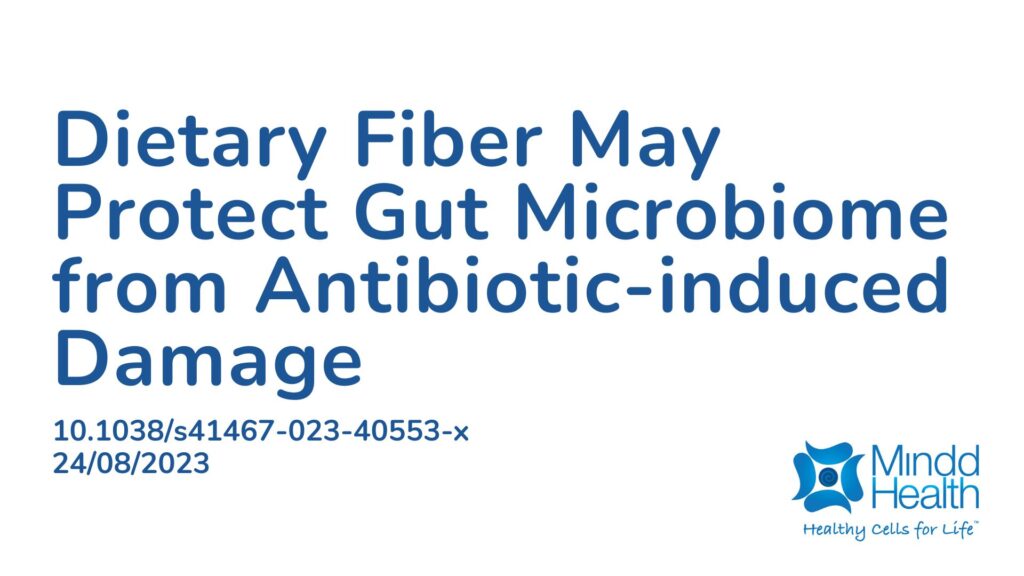Summary:
Antibiotics are essential for treating infections but often cause harm to the gut microbiome, leading to inflammation, immune dysfunction, infections, and metabolic disorders. This study explores how diet, particularly fiber-rich prebiotics, can protect the gut during antibiotic treatment. Diet influences the nutrients available to gut bacteria, which in turn shapes microbial activity. High-sugar Western diets supply easily absorbed sugars, leaving little nourishment for gut microbes. As a result, these microbes consume host tissue, creating an inflammatory, oxygen-rich environment that favors harmful bacteria. In contrast, dietary fiber supports microbial fermentation, producing short-chain fatty acids that help maintain a low-oxygen environment beneficial for healthy bacteria. Recent research shows that fiber supplements can preserve bacterial diversity after antibiotic use, while high-fat, high-sugar diets exacerbate gut damage. Using genomic analyses, this study examined how fiber impacts gut microbiome composition and function during antibiotic treatment. The results demonstrated that fiber intake reduces microbiome disruption by lowering the abundance of aerobic bacteria and oxidative metabolism. These findings suggest that dietary fiber helps protect the gut microbiome from antibiotic-induced damage by maintaining a favorable chemical environment that limits harmful bacterial activity. Fiber supplementation may therefore offer a promising therapeutic approach to mitigate antibiotic-associated gut injury by modulating bacterial metabolism and preserving beneficial microbes during treatment.
Abstract:
Antibiotic-induced gut dysbiosis (AID) is a frequent and serious side effect of antibiotic use and mitigating this dysbiosis is a critical therapeutic target. We propose that the host diet can modulate the chemical environment of the gut resulting in changes to the structure and function of the microbiome during antibiotic treatment. Gut dysbiosis is typically characterized by increases in aerobic respiratory bacterial metabolism, redox potential, and abundance of Proteobacteria. In this study, we explore dietary fiber supplements as potential modulators of the chemical environment in the gut to reduce this pattern of dysbiosis. Using defined-diets and whole-genome sequencing of female murine microbiomes during diet modulation and antibiotic treatment, we find that fiber prebiotics significantly reduced the impact of antibiotic treatment on microbiome composition and function. We observe reduced abundance of aerobic bacteria as well as metabolic pathways associated with oxidative metabolism. These metatranscriptomic results are corroborated by chemical measurements of eH and pH suggesting that fiber dampens the dysbiotic effects of antibiotics. This work indicates that fiber may act as a potential therapeutic for AID by modulating bacterial metabolism in the gut to prevent an increase in redox potential and protect commensal microbes during antibiotic treatment.
Article Publication Date: 24/08/2023
DOI: 10.1038/s41467-023-40553-x



